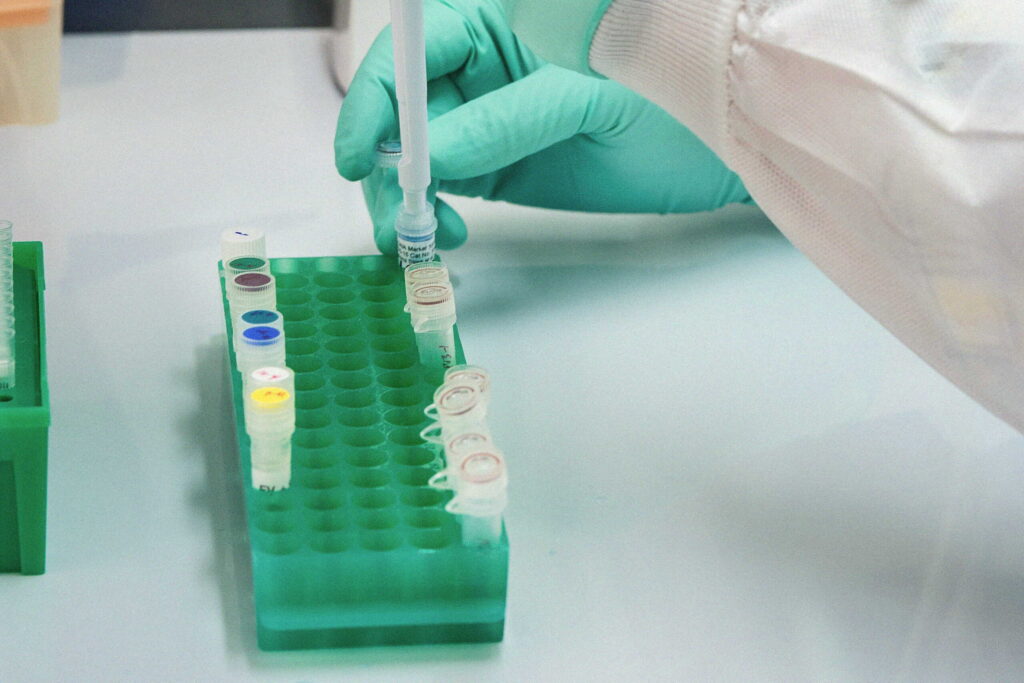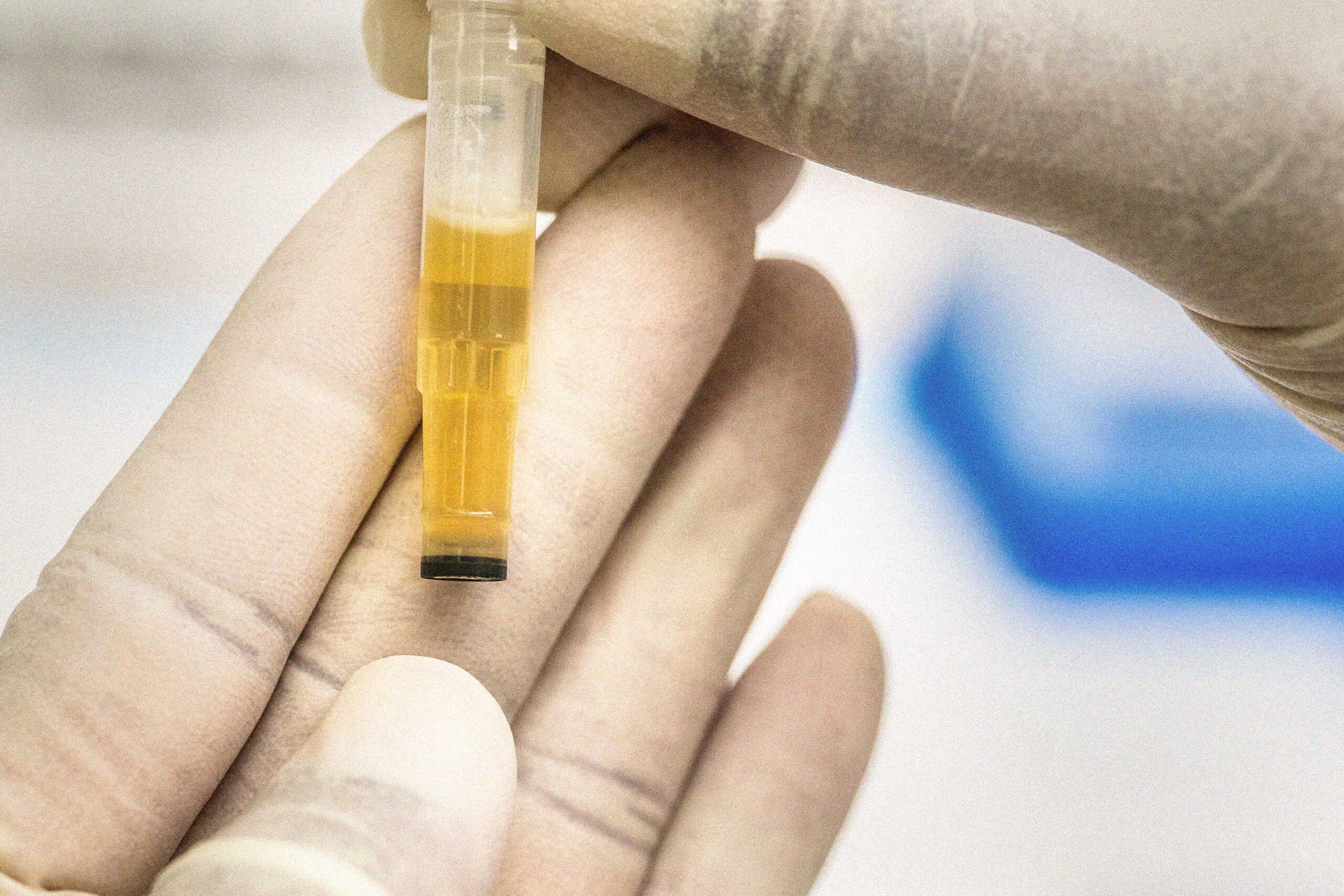In this article, we will explore the parameter of pH (Urinary pH) and its significance in understanding the body’s acid-base balance. Understanding urinary pH can provide insights into your overall health and well-being.
What is being tested and why is it being tested?
Urinary pH refers to the measurement of acidity or alkalinity in the urine, which shows if the urine is more acidic or more alkaline. It tells us about the balance of acid and base in our body.
Testing urinary pH is important to understand the body’s acid-base balance and how it can be influenced by different factors. This balance is essential for overall health and well-being because it affects important functions in our body and how our organs work.

Influenced by diet
What we eat and drink can have an impact on the acidity or alkalinity of our urine. Certain foods and drinks can make our urine more acidic, while others can make it more alkaline. For example, citrus fruits, cranberries, and some dairy products can have an acidic effect, while vegetables, fruits, and certain mineral-rich water can contribute to alkaline urine. By monitoring urinary pH, we can gain insights into how our dietary choices may be affecting our body’s acid-base balance.
Influenced by metabolism
Our body’s metabolism, which is how we process and use energy, can influence urinary pH. Metabolic processes produce acids or bases as byproducts, which can impact the acid-base balance. Metabolic disorders, such as diabetes or kidney disease, can disrupt this balance and lead to imbalances in urinary pH. Monitoring urinary pH can provide information about how well our metabolism is functioning and if there are any metabolic imbalances that need attention.
Influenced by health conditions
Certain health conditions can affect the acid-base balance, leading to changes in urinary pH. For example, respiratory disorders or kidney problems can impact the balance.
Understanding the acid-base balance through urinary pH testing helps us get insights into our body’s overall health and identify any imbalances that might need attention.
Optimal Result
Test Result: Optimal
pH Value Range: 6.5 – 7.5
Wellness Score: 10/10
Wellness Label: Optimal
What this means for health
An optimal urinary pH indicates a balanced acid-base status and is generally associated with good overall health and well-being.
Signs and symptoms
With an optimal pH range, you are less likely to experience specific signs and symptoms related to urinary pH imbalances.
Factors that could interfere
Optimal urinary pH can be influenced by diet, hydration, medications, underlying health conditions, stress, age, genetics, supplements, urinary tract issues, and physical activity. It’s essential to be aware of these factors to promote urinary tract health and make necessary adjustments.
Moderate Result
Test Result: Slightly Alkaline
pH Value: 8
Wellness Score: 7/10
Wellness Label: Moderate
What this means for health
A slightly alkaline urinary pH, typically above 7.0, can be associated with a reduced risk of developing kidney stones, as it makes it less favorable for certain types of stones to form, potentially contributing to better kidney health.
Signs and symptoms
A slightly alkaline urinary pH is not typically associated with specific signs and symptoms. Instead, it measures the pH level in the urine, which various factors, such as diet, hydration, medications, underlying health conditions, stress, age, genetics, supplements, urinary tract issues, and physical activity, can influence. However, significant deviations in urinary pH from the normal range can indicate an underlying issue, but the pH level alone wouldn’t directly cause symptoms. The signs and symptoms would be related to the underlying condition or imbalance affecting the urinary pH.
Factors that could interfere
Achieving a slightly alkaline urinary pH (above 7.0) is influenced by factors including diet, hydration, medications, underlying health conditions, stress, age, genetics, supplements, urinary tract issues, and physical activity. Maintaining this pH range can support urinary tract health and reduce the risk of kidney stones.
Moderate Result
Test Result: Slightly Acidic
pH Value: 6
Wellness Score: 7/10
Wellness Label: Moderate
What this means for health
A slightly acidic urinary pH benefits health as it can help prevent specific kidney stones and lower the risk of urinary tract infections, supporting overall urinary system health.
Signs and symptoms
A slightly acidic urinary pH doesn’t typically cause specific signs or symptoms itself, as it is within the normal range. However, maintaining a slightly acidic pH can reduce the likelihood of kidney stones and urinary tract infections associated with symptoms like flank pain, urinary urgency, and discomfort during urination.
Factors that could interfere
Factors that can interfere with maintaining a slightly acidic urinary pH include a diet high in acidic foods, insufficient hydration, medications that affect pH, underlying medical conditions such as urinary tract infections, and certain supplements that raise urine pH. Stress, age-related changes, genetic factors, and intense exercise can also disrupt the desired slightly acidic urinary pH level.
Low Result
Test Result: Acidic
pH Value: 5
Wellness Score: 4/10
Wellness Label: Low
What this means for health
An acidic urinary pH can be associated with an increased risk of kidney stone formation and may indicate potential underlying health issues in the urinary system.
Signs and symptoms
An acidic urinary pH itself does not typically cause specific signs or symptoms. However, it may contribute to developing certain types of kidney stones, which can result in symptoms such as severe flank pain, blood in the urine, and discomfort during urination.
Factors that could interfere
Acidic urinary pH can be caused by reasons such as high protein diets, alcohol intake, dehydration.
Low Result
Test Result: Alkaline
pH Value: 8.5
Wellness Score: 5/10
Wellness Label: Low
What this means for health
Alkaline urinary pH is generally considered favorable for overall health as it can reduce the risk of kidney stone formation and support a healthier urinary tract. However, extreme or prolonged alkalinity may indicate an underlying health issue and should be assessed by a medical professional.
Signs and symptoms
An alkaline urinary pH typically does not produce specific signs or symptoms. However, consistently high urinary alkalinity may indicate an underlying health condition, such as a urinary tract infection or metabolic disorder, which can present symptoms such as frequent urination, discomfort, or changes in urine color and odor.
Factors that could interfere
A basic urinary pH can be caused by reasons such as a diet high in vegetables and fruit but low in protein

Overall Tips
- Maintain a balanced diet: Consume a variety of fruits, vegetables, and whole grains to maintain a healthy acid-base balance.
- Stay hydrated: Drink an adequate amount of water to support urinary tract health and maintain proper urine pH.
- Avoid excessive intake of acidic or alkaline foods: Limit consumption of highly acidic foods (e.g., citrus fruits) or highly alkaline foods (e.g., baking soda) to maintain a balanced urinary pH.
- Consult a healthcare professional: If you experience persistent symptoms or have concerns about your urinary pH, consult with a healthcare provider for proper evaluation and guidance.
References
- Rose, B. D., & Post, T. W. (2020). Acid-Base Disorders. In Clinical Physiology of Acid-Base and Electrolyte Disorders (pp. 255-278). McGraw-Hill Education.
- Brooks, D. R., & Bates, J. R. (2014). Urinary electrolytes and pH. In Clinical Chemistry: Theory, Analysis, and Correlation (pp. 760-763). Elsevier.
- Abraham, D. (2019). Acid-Base Disorders. In Fluids and Electrolytes (pp. 97-124). Elsevier.
- Bhasin, B., & Estanol, L. (2021). Acid-Base Disorders. In StatPearls [Internet]. StatPearls Publishing.
- Prasad, R. (2020). Urinary pH. In Urine Analysis (pp. 23-30). CRC Press.
- Johnson, R. J., & Andrews, P. (2021). Acid-Base Physiology. In Comprehensive Clinical Nephrology (pp. 124-132). Elsevier.
- Influence of Health Conditions on Urinary pH: Sharma, A. P., & Sharma, P. (2020). Acid-Base Balance: Role in Kidney Stone Formation. Urological Science, 31(4), 174-179. doi: 10.1016/j.urols.2020.05.003
- Influence of Diet on Urinary pH: Frassetto, L., & Kohlstadt, I. (2017). Treatment and Prevention of Kidney Stones: An Update. American Family Physician, 96(10), 648-654. PMID: 29813162
- Influence of Metabolism on Urinary pH: Palermo, A., Cerqua, R., De Luca, D., & Nappi, R. E. (2017). Metabolic Disorders and Kidney Stone Disease: A Systematic Review of the Literature. Archives of Gynecology and Obstetrics, 296(4), 679-688. doi: 10.1007/s00404-017-4463-2
Disclaimer
- It is intended for general informational purposes only: The information provided on BioKissed’s website and app, including but not limited to business opportunities, nutrition tips, healthy lifestyle tips, healthy lifestyle practice articles, nourishing recipes, and wellness articles (hereinafter collectively referred to as “Content”), is intended for general informational purposes only. The Content is not intended to be a substitute for professional business advice, medical advice, diagnosis, or treatment.
- It is solely at your own risk: BioKissed does not recommend or endorse any specific tests, physicians, products, procedures, opinions, or other information that may be mentioned on the website or app. Reliance on any information provided by BioKissed, its employees, contracted writers, or others appearing on the website or app at the invitation of BioKissed is solely at your own risk.
- BioKissed does not endorse or approve any views in the Content: BioKissed does not guarantee the accuracy, completeness, or usefulness of any Content, nor does it endorse any views expressed within the Content. The inclusion of any Content on BioKissed’s website or app does not imply endorsement or approval of such Content.
- You voluntarily assume all such risks: Before participating in any challenge, making significant lifestyle modifications, altering your dietary practices, or engaging in any related activities, it is advisable to assess your personal health and fitness levels. BioKissed expressly disclaims responsibility for the substances individuals choose to consume, and the company is not liable for any consequences, including those related to food allergies, resulting from such choices. By choosing to participate in any challenge, you acknowledge and agree that any such activities carry inherent risks, and you voluntarily assume all such risks, even if they arise from the negligence of BioKissed, its affiliates, or its members.
- BioKissed and its content providers disclaim any responsibility or liability for consequences: BioKissed and its content providers assume no responsibility or liability for any consequence relating directly or indirectly to any action or inaction you take based on the information found on or through BioKissed’s website or app.
- Read more
